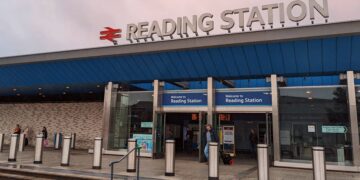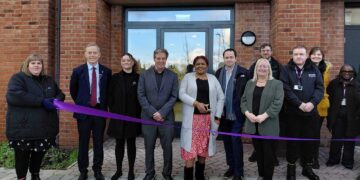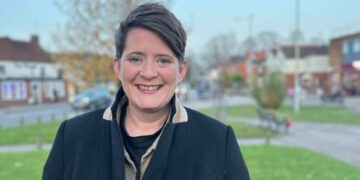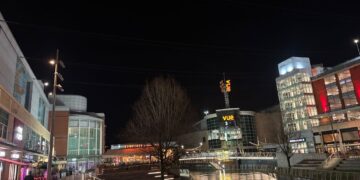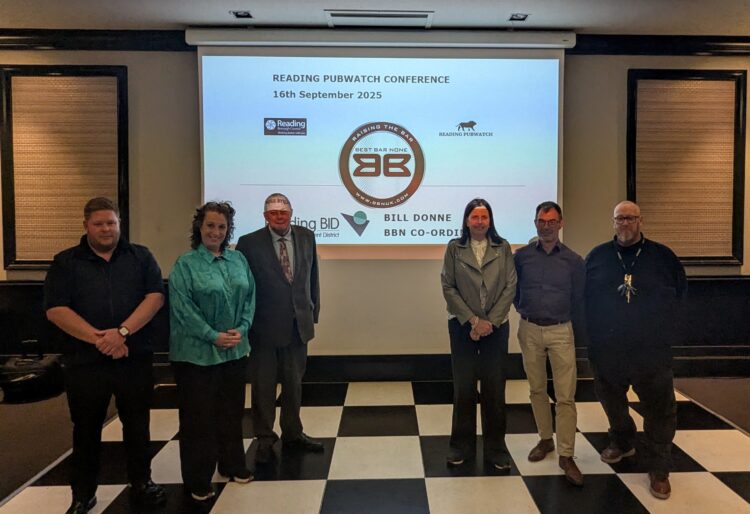PUBWATCH once again invited stakeholders from Reading’s night time economy to its annual conference, including councillors, venue owners, police, and local organisations.
The event, sponsored by Reading Business Improvement District, welcomed speakers Cllr Karen Rowland; Thames Valley Police and Crime Commissioner Matthew Barber; Sarah Walker, of the Women’s Night Time Charter; SIA’s Adam Spicer, and CEO of the Night Time Industries Association, Michael Kill.
Cllr Rowland thanked attendees and explained that: “One of the biggest things we can be proud about in Reading is our night time economy and the diverse population that we cater to.
“And you are the front face and ambassadors of that–we give a really big thank you to those who are part of Pubwatch.
“It doesn’t come around without good support; the work our council licensing teams, police, REDA, and emergency services play such an important role in being the backbone of that.
“While there’s no denying that there have been some rough times recently, including over the summer– there may be some concerns from residents, and that can affect the core of those economies.
“This is a collective thing, however– the way react to and support those occurrences is something we want to continue to support: creating a safe environment and a safe town, in which our night time economy can thrive.”
She also gave thanks to organiser Bill Donne, whom she praised for his continued work in the field and described as a “stalwart” of Reading’s night time economy.
Police and Crime Commissioner Matthew Barber spoke about a number of incidents which had taken place in Reading during this summer, which he said “can have a big impact” on nightlife, but explained that they do not necessarily reflect wider issues.
He also explained their focus on Project Vigilant, an initiative which targets predatory behaviour around night time venues through plain-clothes officers.
“It has led to a number of preventative arrests, as well as prosecutions– a number of those individuals had previous sexual offences, and many travel from different jurisdictions to commit offences, and Thames Valley Police has been very proactive.”
He also addressed TVP’s work during Spiking Intensification Week, but re-iterated that the force continues its work in that area year-round.
“We have also deployed the first police dogs in the world who are trained to detect date rape drugs, which you will see out and about around venues.
“We want to focus on those who are causing the greatest harm, and those are tactics we look to share with others around the country, as well as our continued support of services like the street pastors.”
He noted that there had been a rising trend of ‘prank spiking’, where rather than for sexual gain, spiking had increased among friends without a sexual element or intent.
“While it doesn’t have any sexual intent at the time, it has a huge impact, and can lead to people becoming the victim of others’ actions as a result.”
He explained that while spiking itself is considered a crime as a result of numerous pieces of legislation, such as the Offences Against the Person Act 1861, a motion to make drink spiking a specific criminal offence looks set to be passed.
“We’re working with colleagues in parliament to address this growing phenomenon.”
He also voiced opposition to imposition of a ‘night-time levy’, a fee which can be imposed on businesses aimed at recouping policing costs associated with venues which operate in the evening.
“Not only do I know how difficult it already is for businesses, but we have so many willing partners, such as yourselves, who get involved and support our work, and keep the town safe.
“Reading’s Pubwatch partnership is one of the strongest I’ve attended, and that is very valuable, so we are keen to continue to support that.”
Bill Donne, honorary secretary of Reading Pubwatch, explained to newer attendees about the Best bar None scheme, which sees venues accredited based on policy, procedure, and training to ensure staff and customer safety in Reading.
Finally, Michael Kill, of the Night-time industries association, explained that NTE businesses were experiences around 30-40% increases in operating costs since before the Covid pandemic.
He also noted that since April, businesses had experienced an increase in costs related to staffing and NI contributions of between around £30,000-£80,000.
He said that these contributed to a “hugely challenging landscape for businesses,” and that this had led to a contraction of the number of independent businesses of around 60%.
In terms of consumers, he noted that about 68% of 18- to 30-year-olds consulted reported going out at night less.
He cited lack of funds on behalf of consumers, safety concerns, and travel-related concerns among the reasons which had been given by a cohort of more than 2,000 surveyed.
Despite this, he noted that themed bars had seen a 24% rise, and that cinemas and theatres had also seen a small rise; marking a shift into what is called ‘soft’ clubbing, and more experience-driven events.


